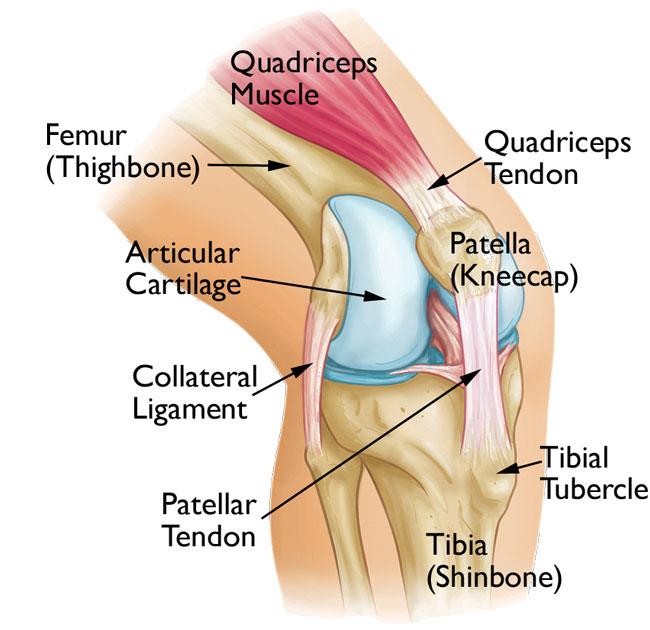Knee pain is a common complaint of all people whether they are elder or younger. Patellofemoral Pain Syndrome is a group of terms used to describe the knee pain caused by abnormal tracking of the kneecap. In this condition, you may experience pain at the front of your knee and around your kneecap (patella).

SYMPTOMS OF PATELLOFEMORAL PAIN SYNDROME
In the case of athletes, more pressure or friction is applied to the cartilage behind the kneecap because of their daily activities. Hence, Patellofemoral Pain Syndrome is a common condition in people who participate in sports that involve running, jumping, Olympic rowing, and cycling.
Also, it is a chronic condition that may get worse when you perform activities such as run, walk up or downstairs, sit for long periods, or squat. Simple treatments such as rest and icing may ease patellofemoral pain.

Patellofemoral pain syndrome usually causes dull, aching pain in the front of your knee. People with flat feet, in-toeing, or knock-knees may be at higher risk for this condition. Athletes with tight hamstring and quadriceps muscles or weak thigh and hip muscles may also be at risk because of the effect these abnormalities have on pressure on the kneecap or tracking.
DIAGNOSIS
Your doctor will ask about your knee problems and history of injury. The physician will press on areas of your knee and move your leg into different positions to examine the condition and knee pain
Your doctor might recommend below tests:
- X-rays – The technique of X-ray visualizes bone and injury well.
- CT scans – CT scans can visualize bone and soft tissues. CT scans help to create cross-sectional images of internal structures from various angles.
- MRI – In the process of MRIs, radio waves and a strong magnetic field are used that can give detailed images of bones and soft tissues, such as the knee ligaments and cartilage.
TREATMENTS
The treatment for an individual with patellofemoral pain syndrome will depend on the condition and which causes are increasing knee pain. To resolve patellofemoral pain syndrome it is necessary to identify the main cause of the pain. Once the causes have been identified, your doctor or a physical therapist will recommend specific treatments.
If you have unbearable pain, take pain relievers, such as acetaminophen (Tylenol, others), ibuprofen (Advil, Motrin IB, others), or naproxen sodium (Aleve). Ice and anti-inflammatory medications can help reduce pain.
Your physical therapist might suggest the below therapies to ease the pain:
- Rehabilitation exercises – Specific exercises can strengthen your muscles which support your knees and control limb alignment, such as your quadriceps, hamstrings, and the muscles around your hips, especially hip abductors.
- Supportive braces – Supportive braces may help improve your pain by supporting Knee braces or arch.
- Taping – Tape your knee to reduce pain and enhance your ability to exercise.
- Ice – Icing your knee after exercise is very helpful.
- Knee-friendly sports – During your recovery, Cross-training activities, such as bicycling and swimming or water running help in maintaining fitness.
If the above nonsurgical treatments aren’t effective, some surgical procedures such as Arthroscopy and Realignment can be used to relieve pressure on the cartilage.
PREVENTION
Patellofemoral pain syndrome is a condition that can be relieved with simple physical therapy. To prevent recurrence of patellofemoral knee pain you can follow below steps:
- Wearing appropriate shoes
- Warming up
- Incorporating stretching and flexibility exercises
- Increasing training gradually
- Don’t repeat any activity which has hurt your knees in the past
- Maintain a healthy body weight
- Avoid overstressing your knees
If you or anyone you know is suffering from Patellofemoral pain syndrome, our expert providers at Zenith Injury Relief & Wellness Clinic will take care of your health and help you recover.
Call 972-210-0033 to schedule your appointment, and begin living your life pain-free.
